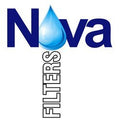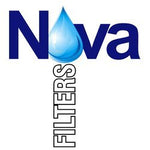Myths About Hard Water
Myths About Hard Water
MYTH #1 - Water softeners are safe for the environment
FACT: Water softeners cause considerable damage to the environment.
Numerous studies have shown that automatic water softeners can produce a salty brine in the waste stream. High sodium content in the waste stream harms aquatic life and can even damage crops that are positioned downstream. Without a proper water filter, water softeners can do irreparable damage to the surrounding environment.
MYTH #2 - Hard water fades clothes and dries skin and hair
FACT: Hard water does not fade clothes or dry skin and hair. Actually, the chlorine present in tap water causes this damage.
Water softeners do not remove chlorine or chlorine disinfection byproducts. As a result, neither hard water or soft water will prevent clothing from fading or skin and hair from drying out. In order to remove chlorine from drinking water, you will need to use a proper water filter.
MYTH #3 - Water softeners filter water
FACT: Water softeners do not filter water.
Water softeners only exchange sodium for minerals. In other words, water softeners convert dirty, chlorinated tap water into dirty, chlorinated, saltwater. There is still a need to use a secondary filtration system to remove salt, sediment, and chlorine to produce palatable water for drinking.
MYTH #4 - Minerals in water are contaminants
FACT: These minerals are nutrients, not contaminants.
Research from the World Health Organization (www.WHO.int) shows that drinking water rich with essential minerals, specifically calcium and magnesium, promotes good health and can even lower the risk of heart disease in many adults.
MYTH #5 - Hard water clogs pipes
FACT: Calcium and magnesium do not build up and clog Pex, Pvc or Cpvc pipes
Between the mid-1940s and the late 1970s, most homes were built using copper or steel (galvanized) pipes. Minerals, such as calcium and magnesium stick to steel pipes. Thankfully, new and re-piped homes built after 1975 have pipes made of Pex, Pvc or CPVC (plastic). These materials don’t face the same issues as metal.

